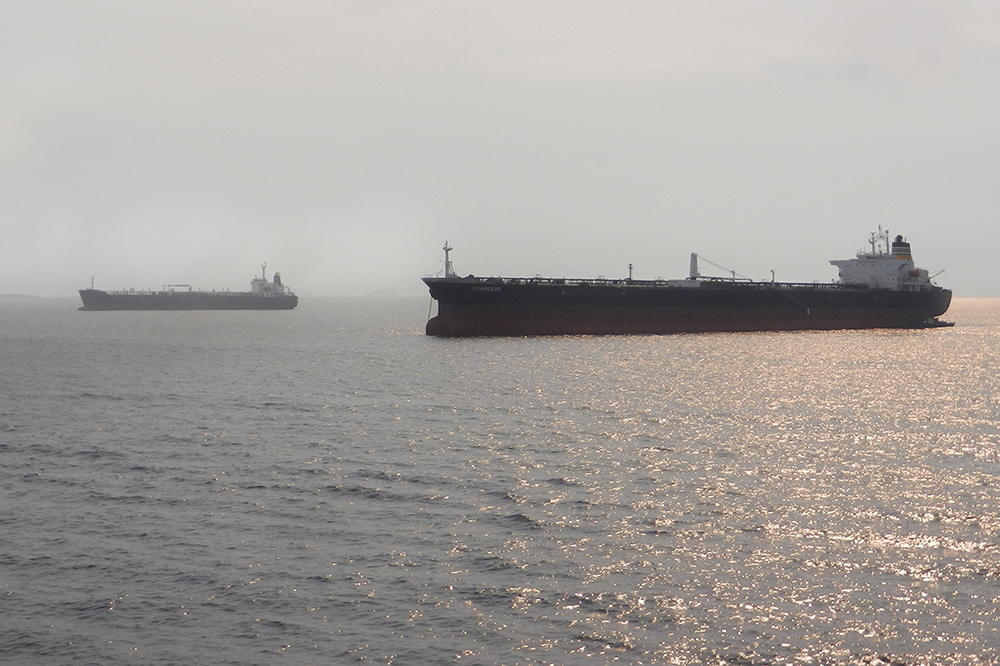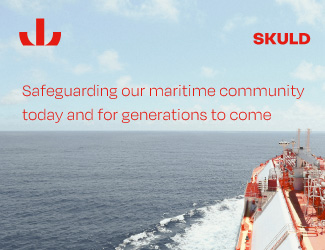As environmental regulations for the shipping sector tighten, port state control authorities are refining their inspection schemes and strategies. At the same time, far more than half of the worlds GT flies the flags of just a handful of states
The Paris MoU Committee has approved the 2019 inspection results and adopted new performance lists for flag States and Recognized[ds_preview] Organizations (ROs). These lists will take effect from the 1st of July 2020. The »White, Grey and Black (WGB) List« system is based on the total number of inspections and detentions over a three-year rolling period for flags with at least 30 inspections in the period.
A total number of 70 flags are listed: 41 on the White List, 16 on the Grey List and 13 on the Black List. In 2018 the total number of flag states on the list was 73 of which 41 on the White List, 18 on the Grey List and 14 on the Black List.
The White List represents quality flags with a consistently low detention record. This list is led by the UK with 1,072 Inspections between 2017 and 2019 with only ten detentions. The rest of the top ten consists of Norway, Bahamas, Netherlands, Denmark, Marshall Islands, Singapore, Hong Kong, Japan and Bermuda. Germany missed the top ten and comes in eleventh at 580 inspections, seven detentions.
Flags with an average performance are shown on the Grey List. Their appearance on this list may serve as an incentive to improve and move to the White List. At the same time flags at the lower end of the Grey List should be careful not to neglect control over their ships and risk ending up on the Black List next year. The bottom three on the Grey List are Egypt, Saint Vincent and the Grenadines and Tuvalu. Worst performers on the black list are Togo (492 Inspections, 80 detentions), Albania (74/16) and Comoros (380/69).
For several years the Committee has closely monitored the performance of ROs acting on behalf of flags. To calculate the performance of the Recognized Organizations, the same formula to determine the performance of flags is used. A minimum number of 60 inspections per RO is needed before the performance is taken into account for the list. In 2019 33 ROs were recorded on the performance list. Compared with last year’s performance level, the level of RO performance is similar, with three ROs in the very low performing parts.
When one or more detainable deficiencies are attributed to a Recognized Organization in accordance with the Paris MoU criteria, it is recorded as »RO responsible« and the RO is informed. Out of 526 detentions recorded in 2019, 80 (15%) were considered RO related (17% in 2018).
The Tokyo MOU members have also released their Annual Report on Port State Control in the Asia-Pacific Region 2019. The year 2019 saw the membership of the Tokyo MOU addressing emerging issues such as cooperation with the Paris MOU to conduct an information campaign with a view to promoting timely compliance with the new sulphur limit requirements on marine fuel oil used by the shipping industry. The sulphur cap came into effect on 1 January 2020 and experience suggests the information campaign carried out in 2019 was effective.
Membership of Tokyo MOU was further expanded in 2019 upon with the acceptance of Panama as the 21st full member of the MOU. With Panama as a member of the MOU, four of the top five world largest flags (namely: Panama, Marshall Islands, Hong Kong and Singapore) are members of the Tokyo MOU.
China leads the Tokyo MOU White List with 1,797 inspections between 2017 and 2019 and only six detentions. China is followed by South Korea, Hong Kong, Singapore Bermuda, Germany (300/2), Bahamas, Norway, France and Malaysia. Comoros, Kiribati and Jamaica are wat the bottom of the Grey List, while Mongolia (261/37), Togo (1,201/174) and Tanzania (44/15) are the worst performing flags on the Black List.
Both number of detentions and detention percentage increased in 2019, after respective seven years’ and ten years’ continuous decrease. It is further observed that the number of under-performing ships published and number of individual ships involved also rose in 2019. These increases are considered as the encouraging outcome of improvement and enhancement on targeting or selecting ships for inspections and, emphasis on inspection of under-performing ships by the member Authorities, based on the observation of continuous increase of inspections of high-risk ships and under-performing ships.
ISM related detainable deficiencies have remained in the top three detainable deficiency categories for several years. One third of all detentions are on the grounds of a major non-compliance with ISM reflecting the importance of ISM to the effective operation of ships.
The average number of detainable deficiencies per detention is trending slowly upwards. As a result the Tokyo MOU says it will refine enhance measures to inspect high risk and under-performing ships. These inspections will focus on safety management system implemented on board ships and familiarization and understanding of operational requirements by the crew. Operational requirements continue to be an area of concern due to the increasing complexity of shipboard systems and the pace of change and the MOU is looking at mechanisms to address this.
Panama maintains largest fleet
The top six flag states are together controlling 61% of the world fleet in terms of gross tonnage. Panama holds 15%, followed by Liberia (13%), Marshall Islands (11%), Hong Kong (9%), Singapore (7%) and Malta (6%).
As od 1 May 2020, the Panama flag ranks first in terms of gross tonnage and number of vessels with 7,907 ships and 219.3mill. GT as of 1 May 2020. Liberia comes in second with 3,836 ships and 177.9mill. GT, followed by Marshall Islands (3,717 ships, 163.5mill. GT). The top three are followed by the flags of Hong Kong, Singapore, Malta, China, Bahamas, Greece (1,278 vessels, 38.9mill. GT) and Japan. The German flag is ranked 30th by Clarksons Research with 609 ships at 8.0mill. GT.
Looking at European Union member state flags only, the list is led by Malta with 2,190 ships at 81.1mill. GT, followed by Greece with 1,278 vessels and 38.9mill. GT. Cyprus ranks third with 1,070 ships at 23.1mill. GT. The top ten list is completed by Danish international register, Madeira, Italy, Germany, Netherlands, Belgium and the French international register.




















